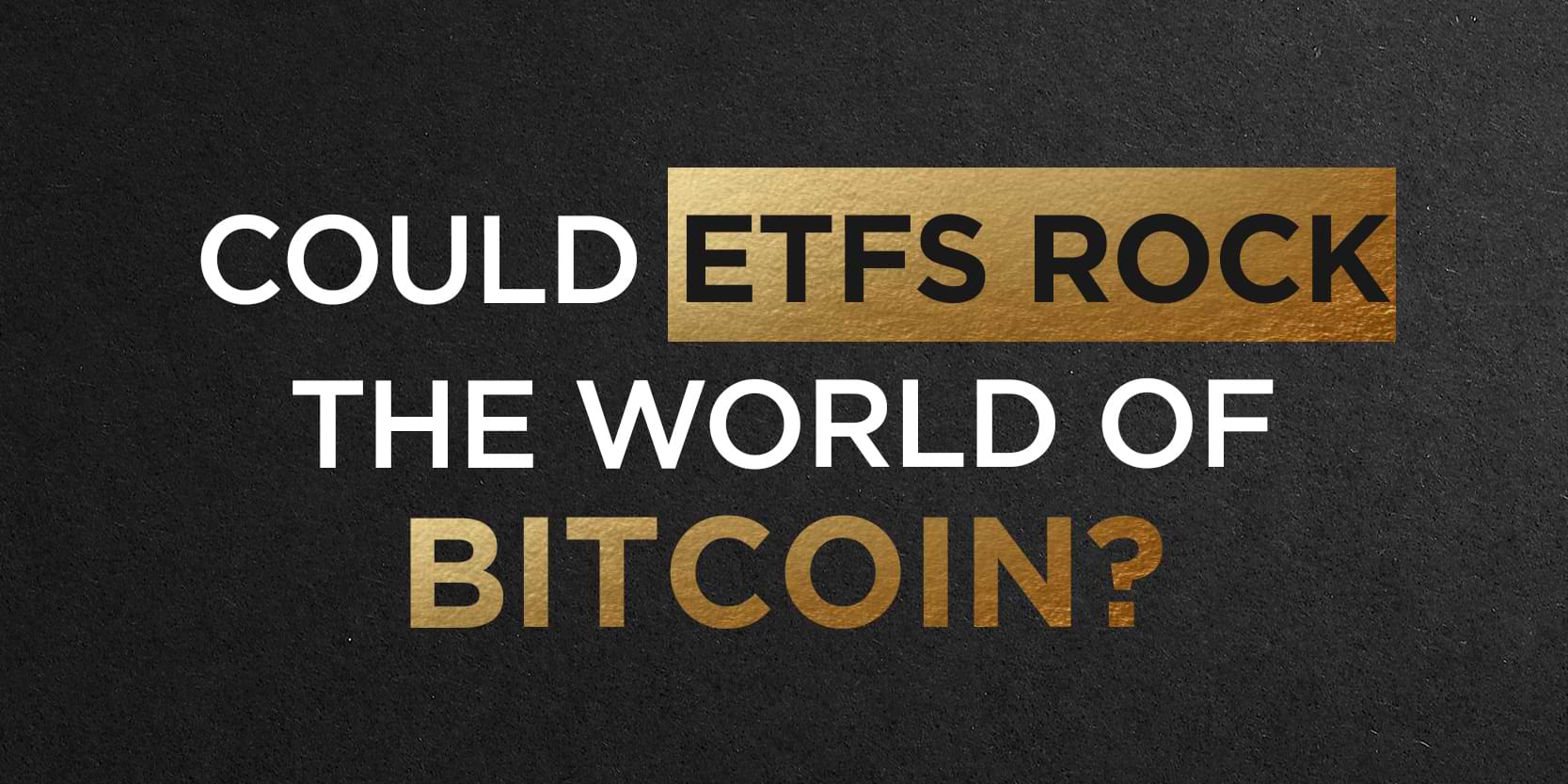
Could ETFs Rock The World of Bitcoin?
Exchange-traded funds (ETFs) have taken the investment world by storm, garnering trillions from traditional stock traders. And cryptocurrency, which has been one of the best asset classes in the past few years, is next-in-line to joining this investment pool. Ethereum has already done it, entering the US market just a few weeks ago. Now the big question is whether Bitcoin stands a chance at breaching the ETF market—and when?
What You Need to Know About ETFs
If you’ve never heard of ETFs, then you’re missing out! These are low-risk investment options that emulate stock-trading behavior, allowing you to make multiple trades at any time of the day, in contrast to mutual funds’ limited trading capacity.
ETFs are essentially baskets that contain various stocks from a particular niche. For instance, a tech-centric ETF may have a portfolio of stocks from Microsoft, Apple, and other similar companies. By choosing to put money into this investment, you don’t purchase the stocks themselves but rather a share from the pool of stocks. This method allows you to dodge the hefty research process required when deciding on individual investments while giving you the opportunity to diversify your portfolio from the get-go.
The market is very low-risk, and the barrier of entry is also relatively low. All you need to do is enter a brokerage and purchase your ETF of choice with any amount of money—it doesn’t matter how little! Profit is paid through dividends, depending on the percentage of the shares you own.
Difference Between Traditional ETFs and Cryptocurrency ETFs
Cryptocurrency ETFs are new to the market, with the first being Ethereum’s. Based on this trend, it’s likely for financial institutions to focus on releasing individual crypto ETFs instead of a pool of various currencies (for the meantime, at least), so investors lose the diversification commonly present in traditional stock ETFs.
However, there are still massive benefits in choosing to purchase ETFs as opposed to investing in the market on your own, including the following:
-
ETFs own the assets they offer for investment, so you don’t have to worry about looking for a trustworthy crypto wallet and frequently maintaining it to ensure it stays hack-free.
-
You don’t have to deal with the trading frenzy common in crypto exchanges. ETFs are purchasable through a traditional exchange, which is easier to manage.
-
Traditional stock investors will find it easier to break into the crypto ETF market instead of learning the ropes of how digital wallets and exchanges work, opening doors for a new breed of mainstream investors.
As with all good things, there are also crucial downsides to crypto ETFs, with the biggest being that you don’t actually hold any of the coins—only a share of the investment pool. That means you can’t purchase BTC currency through an ETF and hope to use it for transactions. ETFs are purely investments; if you’re looking into purchasing cryptocurrency to use for purchases, your only option is to deal with the usual wallet and exchange process.
Bitcoin ETF: Will it Arrive?
The first attempt to file for a Bitcoin ETF occurred almost a decade ago, but it was rejected by the SEC (the Securities and Exchange Commission, which regulates the corporate and investment markets). It’s important to note that there has been various crypto ETFs released overseas, including a Bitcoin derivative in Brazil. However, the US has been lagging in this regard, with rejection after rejection over the past eight years.
On the bright side, there’s hope for a US-approved Bitcoin ETF to finally launch in 2021, especially as the newly-appointed SEC Chairman is Gary Gensler, who has taught crypto classes at the Massachusetts Institute of Technology. There are currently eight hopeful ETFs under the SEC’s review—all of which have BTC assets secured in cold storage, so there’s no risk of an online hack against these institutions.
The eight companies in question include VanEck and NYDIG, which are looking for crypto regulatory approval, allowing Bitcoin ETFs to enter the US. There’s already massive interest in this investment product, considering how the Toronto-based Purpose Bitcoin ETF was able to amass $1 billion in assets in just a few months.
The SEC review was due on the 1st of May, but it has since been delayed in favor of reviewing rule changes. For now, companies are still pressing the SEC by highlighting the investor benefits of a Bitcoin ETF, but the organization has yet to make a concrete decision. While a Bitcoin ETF is expected to arrive at one point, the exact timeline remains uncertain.
The Impact of ETFs: Discussions Over It
There’s massive debate over Bitcoin ETFs and whether or not introducing them into the market is a good idea. On one end of the scale, ETFs are wonderful investment products that offer a cheaper means of getting into BTC investments without having to dip into other cryptocurrency nuances, such as digital wallets and exchanges. As the ETFs in the proposal process all hold assets in cold storage, there’s no risk of losing funds to hacks, which runs rampant in this niche. Consumer demand is also high—it’s not likely for a Bitcoin ETF to fail in the current market.
However, on the other end of the scale, skeptics believe that Bitcoin ETFs are a bad idea, primarily because of the coin’s characteristics. In particular, a limited supply of 21 million BTC means that there’s a possibility for the market to become illiquid, which will lock investors into their ETFs. Given how the BTC landscape is dense with institutional investors, there’s also a risk for big players to manipulate an illiquid market.
While there are fears over the rollout of Bitcoin ETFs, there’s no doubt that they offer massive benefits and have amassed popularity in countries that have already accepted their presence. What about you—do you believe that Bitcoin ETFs will benefit the market, or are you against their release?





Leave a Reply
Add comment ×